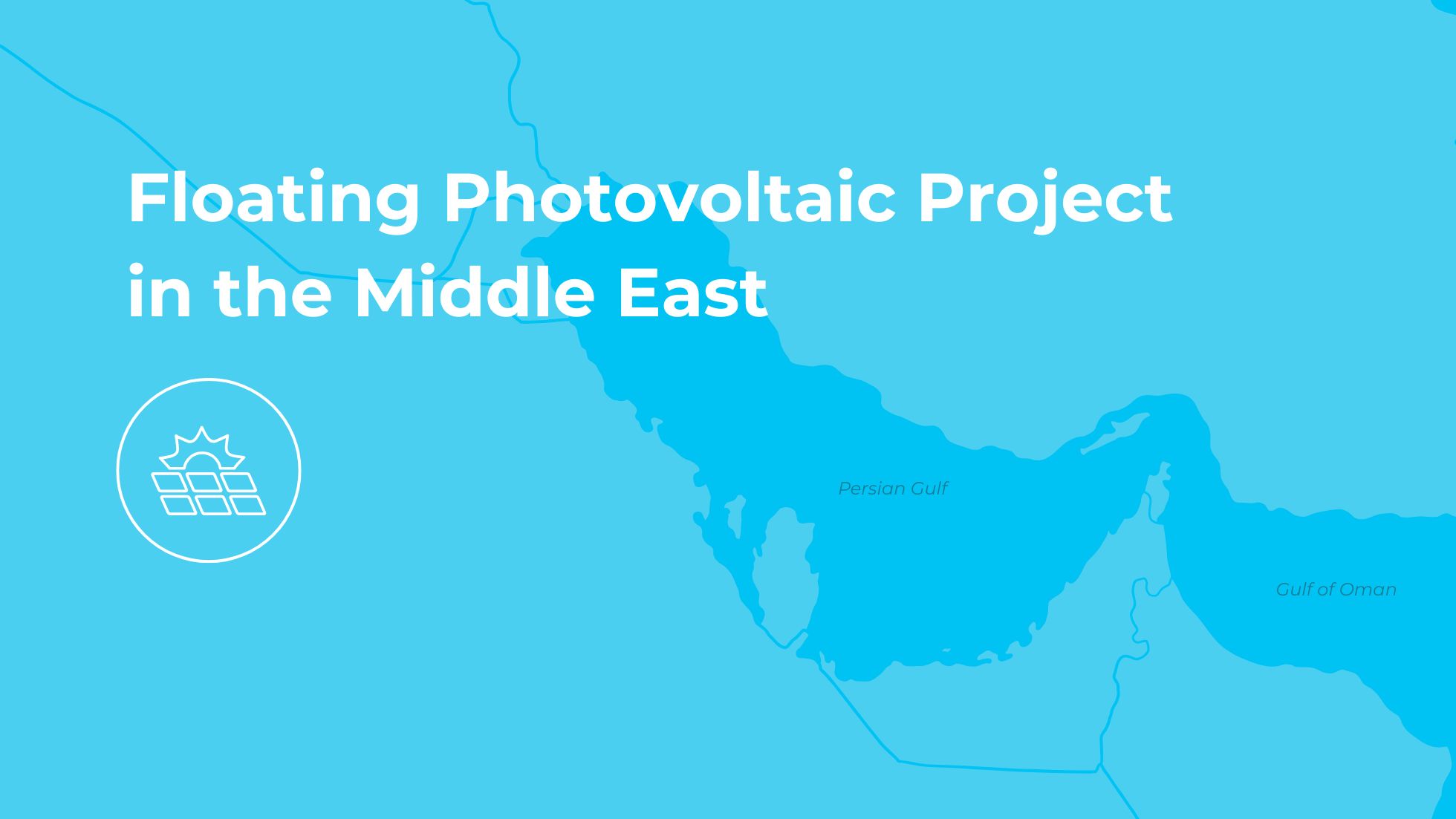Working with EPCs — End-to-End Renewable Energy Engineering Learn More
Blymyer explores major floating photovoltaic project in the Middle East

Blymyer Engineers is in conversation with a large developer to design and engineer a floating photovoltaic (FPV) system in a protected harbor on the Persian Gulf. This extensive project is slated to generate 100MW in solar energy and 200MWh in storage capacity along with a backup generator system.
An innovative renewable energy solution
A FPV system, also known as a floating solar farm, is a series of solar panels mounted on a floating platform using buoys or another type of flotation device and installed on a body of water. It offers an efficient solution for generating renewable energy, especially in areas with limited land resources or high property costs. The World Bank estimates that floatovoltaics could potentially generate 400 gigawatts of electricity—double the worldwide capacity of existing solar panels.
- FPV systems provide other benefits in addition to land conservation: Potential for increased energy generation: Some studies suggest that floating solar panels can generate more electricity than their land-based counterparts due to the cooling effect of the water, which can improve panel efficiency.
- Evaporation reduction: Floating solar panels can help reduce evaporation from water bodies by creating a shade over the surface. This can be particularly beneficial in arid or semi-arid regions.
- More efficient use of resources: Floating solar projects can repurpose unused water bodies, such as old mining pits or industrial ponds, for energy generation.
Several of the world’s largest FPV systems now in operation are in Asia. These include the 320MW Dezhou Dingzhuana Floating Solar Farm in China and the Hapcheon Dam Floating PV Power Plant in South Korea. The Sirindhorn Dam Floating Solar Farm in Thailand is a hybrid system, which combines a floating solar farm with an existing hydropower plant.
Floatovoltaic expertise
“While it’s a relatively new concept in the renewable energy industry, Blymyer already has experience with floatovoltaics,” says Stas Gorbis, Director of Distributed Generation and EV Projects at Blymyer. “We’re particularly excited about this project because it would allow us to leverage our extensive background in both solar and energy storage and present another opportunity to grow our project portfolio in the Middle East. Floatovoltaics has exciting potential, and we are happy to be at the forefront of this innovative approach to alternate energy and water conservation.”